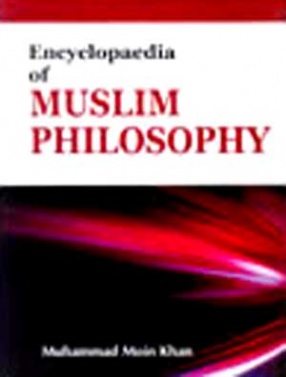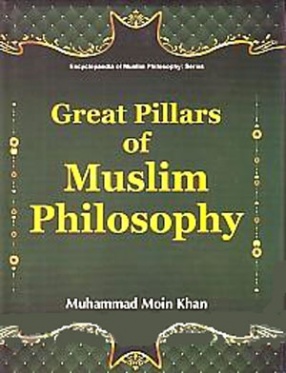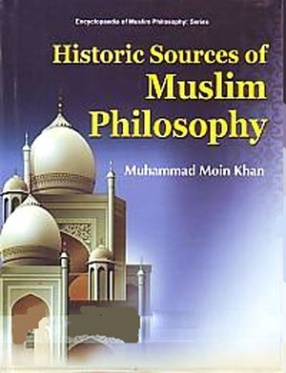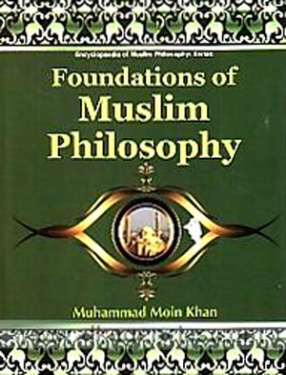Encyclopaedia of Muslim Philosophy
In stock
Philosophy and thought are the basis of Islam, which is an ideological faith. It has its own ideology, logic and science. Islamic philosophy may be defined in various ways, but in fact Islamic philosophy works within the framework of Islamic theology and culture. However, it is not necessarily concerned with religious issues or confined to Muslims alone. From the very beginning, theoretical questions were raised, the questions which could to a certain extent be answered by reference to Islamic texts, such as Holy Quran, old conventions and the practices of the community and the sayings of the Prophet and opinion of his Companions.
On an initial basis, a whole range of what came to be known as the Islamic knowledge, came to be produced, and that consisted largely of religious law, the Arabic language and forms of theology, which represented various ways of understanding Islam. Islamic philosophy has always had a rather difficult relationship with the Islamic science-the techniques for answering theoretical questions, which are closely linked with the religion of Islam, comprising law, theology, language and the study of the religious texts themselves. When Prophet Muhammad (Pbuh) professed a new faith, his purpose was to bring out a kind of community spirit that was to make the world one nation to promote universal brotherhood. Islam developed as a community of men in the service of Allah, the one and only God-Lord of all the worlds. Islamic or Muslim Philosophy is a vast subject, enriched with great traditions, theories and scholarship. It needs great books to explain the ocean of ideas.
This encyclopaedic study is an asset for all scholars of Philosophy, Islamic Studies and of course those, who desire to know Islam, in depth.
Contents:
Vol. 1 Preface.; 1. Ideology of Islam.; 2. Philosophical Perceptions.; 3. Fundamentals of Muslim Philosophy.; 4. Philosophy from Holy Quran.; 5. Concept of Almighty.; 6. Oneness of Allah.; 7. Exemplary Personality.; 8. Philosophy of Faith.; 9. Fudamentals of Faith.; 10. Philosophy of Spirituality.; 11. Historical Backdrop.; Bibliography.; Index.; Vol. 2.; Preface.; 1. Philosophy of Arabia.; 2. Philosophy of Iran.; 3. Philosophy of Greece.; 4. Philosophy of India.; 5. Philosophy of China.; 6. Role of Arabic Language.; 7. The Divine Authority.; 8. Perspective, Prior to Islam.; Bibliography.; Index.; Vol. 3.; Preface.; 1. Knowledge and Wisdom.; 2. Wisdom from Divinity.; 3. Knowledge from Holy Quran.; 4. Wisdom from Holy Quran.; 5. Teachings of the Prophet.; 6. Revolutionary Ideas.; 7. Social Philosophy.; 8. Basis of Social Setup.; 9. Model Personality.; 10. Missionary Zeal.; 11. Ideology of Life under Islam.; Bibliography.; Index.; Vol. 4. Preface.; 1. Abu Hanifah and Abu Yusuf's School of Thought.; 2. Ibn-e-Taimiyyah's School of Thought.; 3. Ashari's School of Thought.; 4. Tahawi's School of Thought.; 5. Maturidis School of Thought.; 6. Mutazilite School of Thought.; 7. Ikhwan-al-Safa School of Thought.; 8. Jalal Uddin Dawwani's School of Thought.; 9. Zahirite School of Thought.; 10. Jalal Uddin Rumi's School of Thought.; 11. Shah Waliullah's School of Thought.; 12. Sheikh Ahmad Sirhindi's School of Thought.; 13. Sanusi's School of Thought.; 14. Jamal Uddin al-Afghani's School of Thought.; 15. Muhammad Abduhu's School of Thought.; Bibliography.; Index.; Vol. 5 Preface.; 1. Scholarship in Roots.; 2. Attitudinal Ideology.; 3. Thesis of World's Creation.; 4. Perception of Law of Nature.; 5. Learning and Knowledge.; 6. Logical and Scientific View.; 7. Scientific Attitude.; Bibliography.; Index .









There are no reviews yet.